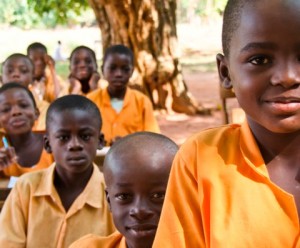Ghana to implement inclusive education policy in 2015
 Ghana will implement an Inclusive Education Policy next year, and pre-service and in-service training enrolled for teachers in special needs and inclusive education to manage children with special educational needs.
Ghana will implement an Inclusive Education Policy next year, and pre-service and in-service training enrolled for teachers in special needs and inclusive education to manage children with special educational needs.
The Policy is a national document which is clear cut and comprehensive to give guidance to Inclusive Education implementation in Ghana.
Under it, community sensitization programmes to educate parents to bring out their children for enrolment, and the right to choose the choice of schools for their children are guaranteed.
Mr. Thomas Patrick Otaah, at the Special Education Division of the Ghana Education Service in Accra, said at a day’s orientation on “Inclusive Education Policy” forum in Wa that, every year children would be screened and all those found to have less disability challenges, would be integrated into normal schools.
He said Special Schools would change a bit, as children in those schools would be screened, assessed and re-assessed and re-categorized, and those who could cope up, would be mainstreamed to normal schools
Some existing structures in the special schools would also be reformed into resource centres, and resourced to cater for the needs of persons with special needs in Ghana.
“With the implementation of the Policy from 2015, no head teacher or teacher can turn away a child from his or her school, because that child has a disability.”
“Head teachers would have to accept, admit and welcome the children to school. Every child has a right to education irrespective of individual physical emotional and intellectual difficulties or characteristics,’ he warned.
Mr. Otaah said Special Schools would under-go some restructuring and regular schools created within a special school, and place children who could cope with integration.
Some children, partially blind, would be mainstreamed and provided with reading materials with large characters and lenses to enable them read.
He urged stakeholders, including traditional rulers, school authorities, parents and guardians, as well as District assemblies and educational authorities, to play their roles appropriately, to ensure that Ghana practices all inclusive education.
All sectors, including Parliament and government would be sensitised to play their roles effectively while government would be encouraged to create large budgets for special schools.
The University of Education, Winneba, would increase intake, and provide specialized training to teachers to handle children in special schools.
Mr. Otaah said government has made money available even though the policy had not yet been approved for implementation.
Dr. Kweku Hayford , Head of Department, Special Education Department, University of Education, Winneba, said out of fear, traditional schools separate children with special needs and disability challenges from the regular schools.
He said there have been about 12 disability challenges among children, and nine have not been catered for.
He said the traditional education system had denied such children of quality education; their rights to education had been jeopardized and they had been devalued in society.
Dr. Hayford urged government to implement the policy, to ensure that all children, irrespective of the type of creation, have access to quality education.
Source: GNA
